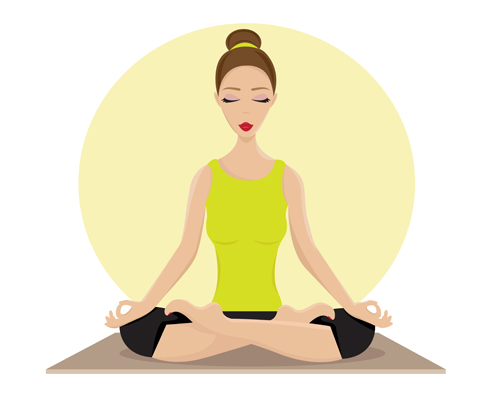Yoga Slows Down All Types of Aging
Practice yoga on a daily basis might extend your life and health span. Intensive practice of yoga counteracts the effects of aging in practically all areas. This appears from a pilot study that researchers from the All India Institute of Medical Sciences in New Delhi published in Oxidative Medicine and Cellular Longevity.
Study
The researchers experimented with 94 healthy people aged 30-65 who did not live very healthy. They had a ‘modern lifestyle’, the researchers say.
For 12 weeks, 5 days per week, the subjects had to complete a yoga session of 120 minutes. Details about the session can be seen below. Click on the figure for a larger and readable version.
 |
Before and after the 12 weeks, the researchers analyzed the blood of the test subjects. There was no control group.
Study
After 12 weeks, the researchers found less free radical activity in their test subjects’s samples, less damage to DNA, more telomerase [an enzyme that prolongs the telomeres in the DNA and thus might delay aging], less of the stress hormone cortisol, less of the inflammatory factor interleukin-6, more BDNF [a hormone that makes brain cells make new connections] and more sirtuins [a group of enzymes that rejuvenates cells].

Conclusion
| “Though we cannot change our biology or chronological age we can definitely reverse or slow down the pace at which we age by adopting Yoga and Meditation based lifestyle intervention”, write the researchers. |
“This is the first study to demonstrate improvement in both cardinal and metabotrophic biomarkers of cellular aging and longevity inapparently healthy population after Yoga and Meditation based lifestyle intervention.”
“Making Yoga and Meditation an integral part of our lifestyle may hold the key to delay aging or aging gracefully, prevent onset of multifactorial complex lifestyle diseases, promote mental, physical, and reproductive health, and prolong youthful healthy life.”
Source:
Oxid Med Cell Longev. 2017;2017:7928981.
From ergo-log.com
